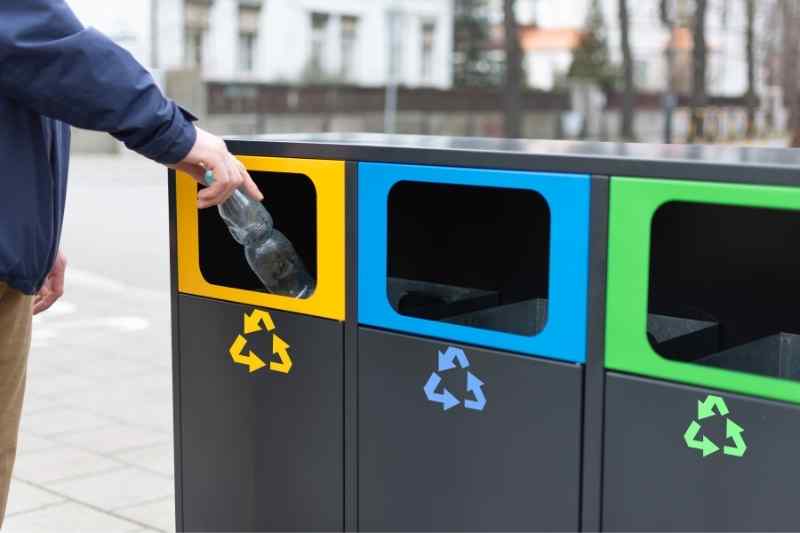Commercial Waste Disposal Best Practices for Efficient Business Management
Commercial waste disposal is the process of collecting, transporting, and managing waste produced by businesses, ensuring it is handled safely and efficiently. Proper disposal minimizes environmental impact, keeps workspaces clean, and complies with regulations to avoid fines. Effective commercial waste management balances cost, sustainability, and convenience to meet a company’s unique needs.
Businesses generate various waste types that require different handling methods, from recyclables to hazardous materials. Choosing the right service involves understanding dumpster sizes, pickup schedules, and eco-friendly options. Reliable providers offer tailored solutions that can improve operational efficiency while supporting environmental goals.
With the increasing focus on sustainability, companies are adopting smarter waste disposal practices. These include reducing waste generation, maximizing recycling, and leveraging innovative technologies. Staying informed about these strategies helps businesses maintain compliance and reduce their environmental footprint over time.
Commercial Waste Disposal Methods
Commercial waste disposal involves various approaches tailored to the type of waste and business needs. These methods include regular collection services, recycling initiatives, and specialized handling for hazardous materials to ensure compliance and environmental safety.
Traditional Waste Collection Services
Traditional waste collection is the most common method where businesses arrange for licensed haulers to pick up commercial waste regularly. Containers such as dumpsters or bins are placed curbside at designated times. After pickup, these containers must be removed promptly to maintain business operations and comply with local regulations.
Businesses often select from a range of container sizes and pickup schedules to match their waste volume. Licensed companies handle the transport and disposal, typically taking the waste to authorized landfills or waste processing facilities. This method focuses on efficiency and adherence to municipal standards.
Recycling and Sustainable Practices
Many businesses adopt recycling and sustainable waste management to reduce their environmental impact and lower disposal costs. This involves separating recyclable materials like paper, plastics, metals, and glass from general waste.
Sustainable practices also include composting organic waste and using vendors that prioritize eco-friendly disposal methods. Effective recycling programs can improve operational efficiency and enhance a company’s public image by demonstrating environmental responsibility.
Hazardous Waste Management
Hazardous waste requires specialized handling due to its potential risks to human health and the environment. This category includes chemicals, batteries, medical waste, and other toxic substances generated by certain businesses.
Proper management involves identifying hazardous materials, using secure containment, and employing licensed hazardous waste carriers. Disposal follows strict regulatory guidelines to ensure safe treatment, storage, and destruction, reducing liability and ensuring compliance with laws.
Regulations and Best Practices
Commercial waste disposal requires adherence to specific standards to ensure safety, environmental protection, and legal compliance. Best practices focus on minimizing risk, optimizing efficiency, and meeting regulatory demands without compromising operational needs.
Compliance with Local and National Laws
Commercial waste disposal is regulated at multiple levels, including federal, state, and local authorities. The Resource Conservation and Recovery Act (RCRA) is a key federal law that governs handling and disposal of hazardous and non-hazardous waste in the U.S. Businesses must classify their waste accurately to comply with these regulations.
Local regulations often add requirements for permits, waste tracking, and reporting. Failure to comply can result in fines or operational restrictions. Regular training for staff on legal obligations and documentation is essential for maintaining compliance.
Ensuring compliance involves maintaining records of waste types, volumes, disposal methods, and verification from licensed waste haulers. Audits and inspections are common and require proper preparation.
Reducing Environmental Impact
Businesses can reduce their environmental footprint by adopting sustainable waste practices. This includes reducing waste generation, recycling, and using eco-friendly disposal methods whenever possible.
Selecting waste processors that follow environmental standards and encourage waste diversion helps minimize landfill use. Implementing waste audits identifies opportunities to reduce unnecessary waste and increase recycling rates.
Incorporating sustainable practices also supports corporate social responsibility efforts, building a positive reputation with customers and regulators. Sustainable waste management can lead to cost savings through improved resource use and reduced disposal fees.
Safe Waste Storage and Handling
Proper storage and handling of waste are critical to preventing accidents, contamination, and regulatory violations. Waste must be stored in appropriate containers that are clearly labeled and in good condition to avoid leaks or spills.
Facilities should designate specific areas for waste storage that are secure, well-ventilated, and comply with fire and safety codes. Segregation of hazardous and non-hazardous waste reduces cross-contamination risks.
Staff should receive training on correct handling procedures, including the use of personal protective equipment (PPE) and emergency protocols. Regular inspections of storage areas ensure ongoing safety and compliance with regulations.





